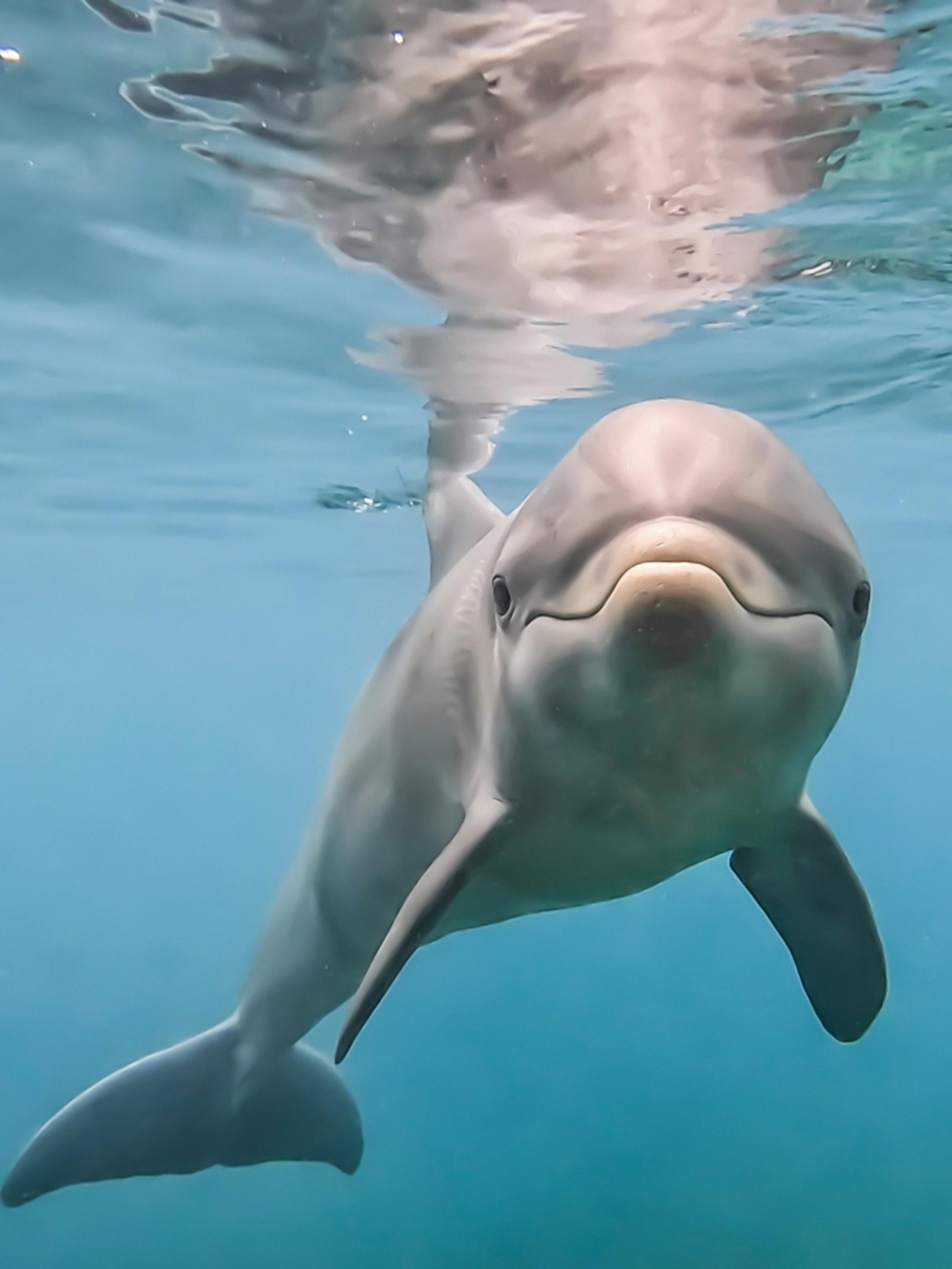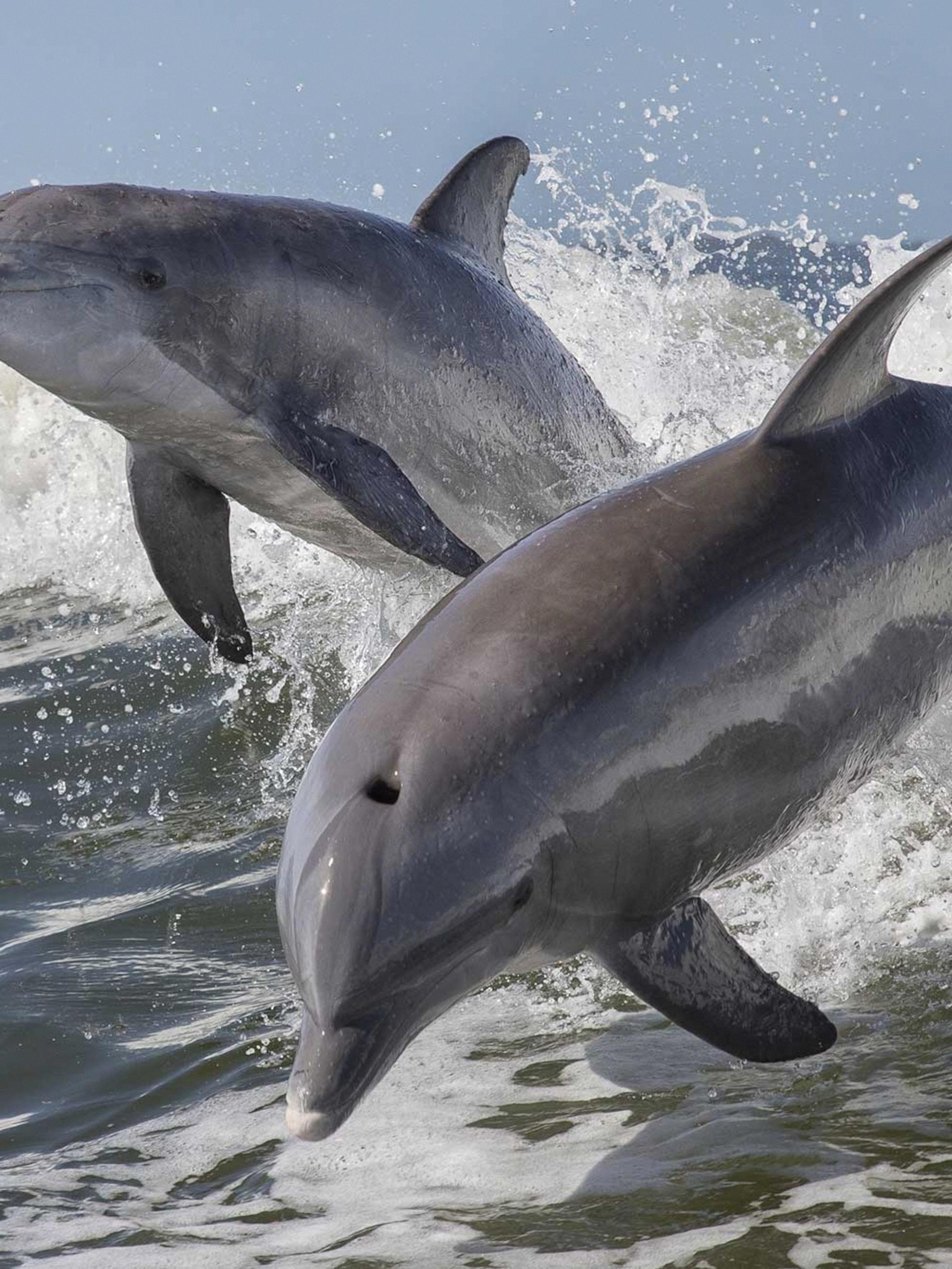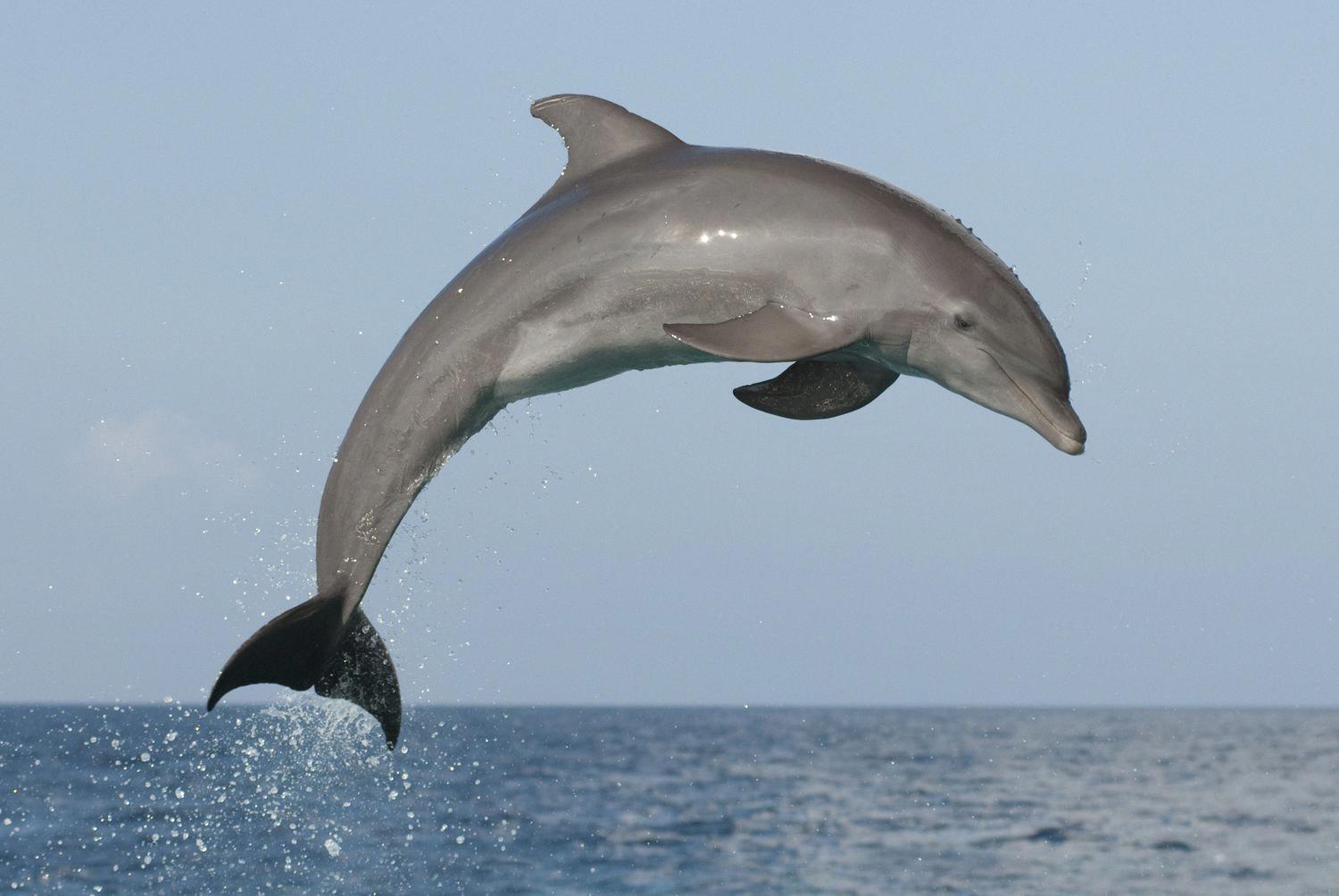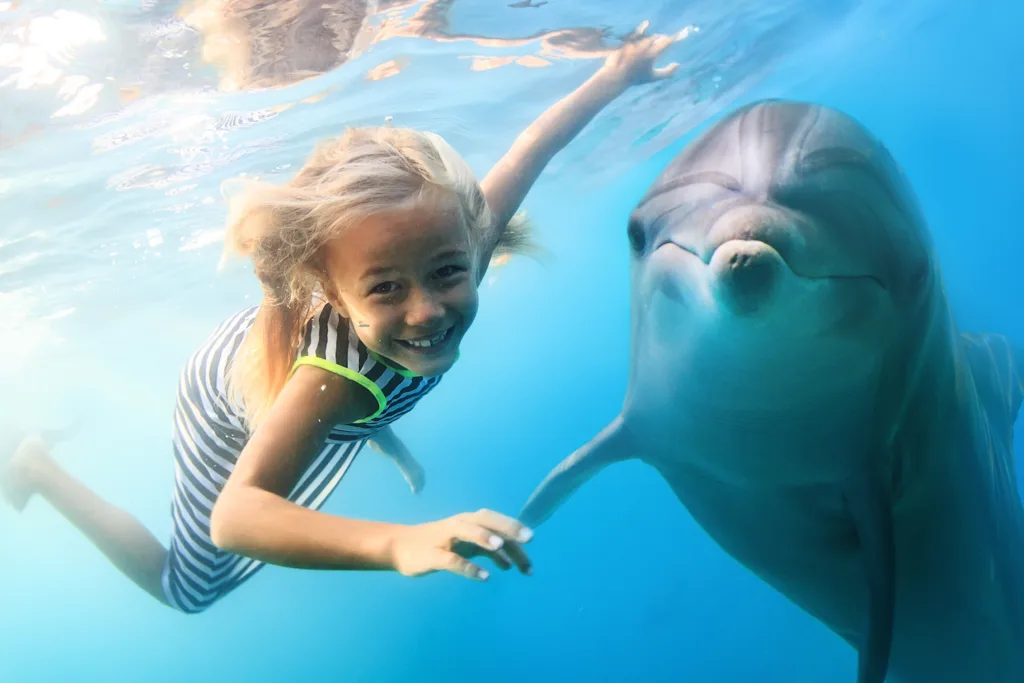Dolphins are fascinating and intelligent creatures that have captivated human attention for centuries. Many people are drawn to them and seek out opportunities to swim with them, but are dolphins capable of attacking humans?
The short answer is yes, dolphins can attack humans. While these incidents are rare, they do occur, and it’s important to understand the circumstances that can lead to aggressive behavior from dolphins.
Firstly, it’s important to recognize that dolphins are not domesticated animals, even those bred in captivity. They are wild animals with their own instincts and behaviors, and interacting with them can be risky. Dolphins can become agitated, frustrated, or afraid when people try to swim with them or invade their space.
Furthermore, dolphins that have become accustomed to receiving handouts from humans can become pushy, aggressive, and threatening when they don’t get what they expect. These so-called “career beggars” can be found in some tourist destinations and may pose a risk to swimmers.
In addition, dolphins can display sexual aggression towards humans. While this is rare, it has been documented in some cases where people have interacted with dolphins inappropriately.
When it comes to programs where humans interact with dolphins in a controlled environment, such as swim with the dolphin experiences or captive dolphin shows, thee have been instances of dolphins displaying agitated and aggressive behavior. These conditions can be stressful for the animals and may lead to unpredictable behavior.
While incidents of dolphin attacks on humans are rare, they can result in serious physical injuries. In 2019, a 10-year-old girl was attacked by a dolphin during a swim with dolphins experience in Cancun, Mexico, which received widespread media attention.
While dolphins are generally peaceful and playful creatures, they are wild animals that should be treated with respect and caution. Interacting with them can be risky, especially in certain circumstances. It’s important to understand the potential risks and take appropriate precautions when swimming with dolphins or interacting with them in any way.
Are Dolphins Aggressive Towards Humans?
Yes, dolphins can be aggressive towards humans. While dolphins are often known for their friendly and playful behavior, there have been instances where they have shown aggression towards people. This is more likely to occur when dolphins are in captivity, where they may be more stressed or frustrated due to their unnatural environment. In the wild, dolphins may also become aggressive towards humans if they feel threatened or if humans are interfering with their natural behavior. It is important to remember that whle dolphins may seem friendly, they are still wild animals and should be treated with caution and respect. It is recommended to avoid approaching or interacting with wild dolphins, and to always follow guidelines and regulations when swimming or boating in areas where dolphins are present.

Source: nationalgeographic.com
The Risk of Dolphin Bites to Humans
Yes, dolphins can bite humans in certain situations. Wild dolphins may bite when they are feeling angry, frustrated, or afraid. They can become disturbed when people try to swim with them or invade teir personal space. Additionally, dolphins who have become accustomed to being fed by humans may become pushy, aggressive, and threatening when they don’t receive the handout they expect. It is important to remember that dolphins are wild animals and should be treated with respect and caution. While they are intelligent and playful creatures, humans should always exercise caution when interacting with them to avoid any potential harm.
Swimming with Dolphins: Is It Safe?
While dolphins are generally knwn to be friendly and playful creatures, it is important to acknowledge that they are still wild animals and can exhibit unpredictable behavior. Swimming with dolphins in the wild may be unsafe as they can become agitated or aggressive in certain situations. In addition, dolphins in Swim With The Dolphins programs have been known to display stressed and aggressive behavior due to the forced interaction with humans. This can lead to serious physical injuries to swimmers. Therefore, it is essential to always exercise caution and follow guidelines when swimming with dolphins, and to prioritize the safety and well-being of both the dolphins and humans involved.
Frequency of Dolphin Attacks on Humans
Dolphin attacks on humans are extremely rare occurrences. While there have been a few documented incidents of dolphins biting or ramming into humans, they are generally considered to be friendly and playful creatures. In fact, dolphins are known to be highly social and intelligent animals, and they have been observed interacting positively with humans in varios settings. However, it’s important to note that wild animals can be unpredictable, and it’s always best to exercise caution and respect when interacting with them. In general, the risk of a dolphin attack on a human is very low, and most people can safely enjoy swimming and interacting with dolphins in supervised settings.
What to Do When a Dolphin Approaches You
If a dolphin approaches you while you’re in the water, it’s important not to engage, pursue, or try to interact with the animal. While dolphins may appear friendly and curious, their behaviors can be misinterpreted and could potentially lead to disturbance or aggression. Instead, take immediate steps to move away from the dolphin and give it space. If you’re swimming or snorkeling, calmly and slowly swim back to shore or a boat. It’s important to remember that dolphins are wild animals and should be treated with respect and caution to ensure the safety of both humans and dolphins.

Source: kids.nationalgeographic.com
Why Sharks Are Intimidated by Dolphins
Sharks are afraid of dolphins due to their unique hunting strategies and physical characteristics. Dolphins are highly intelligent and social animals that often travel in pods. These pods work together to surround and confuse sharks, making it difficult for them to attack. Additionally, dolphins have very strong and thick bones in their snouts, whih they use as biological battering rams to jab into the soft underbelly of a shark, causing serious internal injuries. Furthermore, the high-pitched sounds that dolphins emit can also disorient sharks and affect their behavior. All these factors combined make sharks wary of dolphins and often avoid confrontation with them.
Exploring the Interaction Between Humans and Wild Dolphins
Wild dolphins may or may not allow humans to touch them. In general, it is not recommended to touch wild dolphins as it can disrupt their natural behaviors and potentially harm them. Dolphins are highly intelligent and social animals that may approach humans out of curiosity or playfulness, but they typically initiate any physical contact themselves. If a wild dolphin does approach a human, it is important to respect their space and avoid touching them unless they clearly initiate the interaction. Attempting to touch a wild dolphin wthout their consent may cause them to swim away or even become aggressive, which can be dangerous for both the dolphin and the human. Therefore, it is important to prioritize the well-being of wild dolphins and observe them from a respectful distance.
The Motivation Behind Dolphins Seeking Out Human Interaction
Dolphins are social animals that are known for their high level of intelligence and complex social behavior. While the exact reason why dolphins seek out humans is not yet fully understood, there are several factors that may contribute to this behavior. One possible reason is that dolphins are naturally curious animals and are attracted to new and interesting stimuli. Humans may provide this type of stimulation due to their unique appearance, movements, and behaviors. Additionally, dolphins may seek out humans as companions when they cannot find members of their own species. Studies have shown that dolphins are highly sociable creatures and may form bonds with humans when oher dolphin companions are not present. Furthermore, dolphins are known to follow boats and swimmers, perhaps indicating a desire to interact with humans. Overall, while the motivations behind dolphin-human interactions are not yet fully clear, it is evident that these interactions are important and meaningful for both species.
Do Dolphins Provide Protection From Sharks for Humans?
There is no scientific evidence to suggest that dolphins protect humans from sharks. While there have been anecdotal reports of dolphins appearing to intervene in shark attacks on humans, these instances are rare and not well-documented. Sharks and dolphins are often found in the same areas because they both feed on similar prey, and the presence of dolphins does not necessarily indicate the absence of sharks. It is important to follow established safety guidelines when swimming in areas where sharks are known to be present, regardless of whether or not dolphins are also in the vicinity.

Source: thoughtco.com
The Relationship Between Dolphins and Humans
Dolphins are highly intelligent and social animals that have been known to interact with humans in a friendly and curious manner. However, it is important to note that dolphins do not necessarily like humans for who we are, but rather for what we can provide them – free food. Many dolphins have become accustomed to regular interactions with humans, particularly in areas where they are fed, and therefore may approach humans in a friendly manner in anticipation of receiving food. It is also worth noting that dolphins are naturally curious animals and may approach humans simply out of curiosity or playfulness. However, it is important to remember that whle friendly interactions with dolphins can be a unique and enjoyable experience, it is crucial to respect their natural behaviors and habitats and not to interfere with their lives.
Do Dolphins Show Affection Towards People?
The question of whether dolphins love people is a complex one, as it is difficult to fully understand the emotions and motivations of animals. However, there are several instances where dolphins have shown affection and attachment towards humans, suggesting that they are capable of experiencing positive emotions towards our species.
One example of this is the story of a wild dolphin named JoJo, who lived in the waters off the coast of Turks and Caicos. JoJo was known for seeking out human companionship and often swam alngside boats and interacted with swimmers. Many people who met JoJo reported feeling a strong connection with the dolphin, and some even claimed that he would seek them out specifically for attention and affection.
In addition to interactions with wild dolphins, there are also examples of dolphins forming deep bonds with humans in captivity. For example, there have been numerous cases of dolphins in marine parks and aquariums becoming attached to their trainers and caretakers. These dolphins often seek out human contact and show signs of distress when separated from their human companions.
While it is difficult to definitively say whether or not dolphins love people, there is certainly evidence to suggest that they are capable of experiencing positive emotions towards humans. Whether this constitutes love in the same way that humans experience it is still up for debate, but it is clear that dolphins are capable of forming close bonds and attachments with members of our species.
Swimming with Dolphins in Mexico: The Risks Involved
Swimming with dolphins in Mexico may seem like an exciting and unique experience, but it’s important to conider the potential risks and ethical concerns involved. One major issue is the pollution that can be found in dolphin pens, as oil and gasoline slicks can coat the water’s surface and be ingested by the dolphins. Additionally, dolphin excrement can be present in the water, which poses a health risk for humans who are swimming with them. It’s also worth noting that dolphins are intelligent, social animals who may suffer physical and psychological harm from being kept in captivity for human entertainment. In light of these concerns, it’s recommended that individuals reconsider swimming with dolphins in Mexico and seek out alternative ways to enjoy marine life responsibly.
Do Dolphins Protect Humans?
Yes, dolphins have been known to try and protect humans in certain situations. There have been several documented cases of dolphins helping humans who are in danger, including two incidents whre pods of dolphins protected surfers from great white sharks. In both cases, the dolphins circled the surfers for over thirty minutes, keeping the sharks at bay and allowing the surfers to escape safely. Additionally, there have been reports of dolphins rescuing swimmers who were struggling in the water and even guiding lost or disoriented swimmers back to shore. While these incidents are relatively rare, they demonstrate that dolphins are intelligent and social animals that are capable of complex behaviors and even empathy towards humans.
The Inability of Humans to Interact with Dolphins
Humans and dolphins are both mammals, but they belong to different species and have different needs and behaviors. While it may seem like a fun and harmless activity to interact with dolphins in the wild, it can actually result in serious health risks for both the dolphins and the humans involved.
One of the main concerns is disease transfer. Although sea water is a natural disinfectant, dolphins can carry various pathogens that can be harmful to humans. Conversely, humans can carry bacteria and viruses that can affect the health of dolphins. Interacting with dolphins can also disrupt their natural behavior patterns, which can lead to stress and other negative impacts on their health and well-being.
Moreover, swimming with dolphins can be considered a form of harassment, which is illegal and can result in fines. Dolphins are wild animals that should be respected and protected in their natural habitats. Instead of interacting with them directly, people can observe them from a safe distance and support conservation efforts to protect their populations and habitats.
Do Dolphins Assist Humans in Avoiding Drowning?
Yes, it is known that dolphins have saved humans from drowning on multiple occasions. There have been numerous reports and documented cases of dolphins rescuing swimmers and surfers from dangerous situations in the ocean. Dolphins have been observed circling around struggling swimmers or surfers, and sometimes even pushing them towars shore or out of harm’s way. In addition to rescuing humans from drowning, there are also accounts of dolphins guiding boats through rough waters and alerting sailors to the presence of sharks. While the exact reason for dolphins exhibiting this behavior is not fully understood, it is believed that their highly intelligent and social nature may play a role in their willingness to help humans in need.

Conclusion
In conclusion, while dolphins may be friendly and playful creatures, they are not domesticated animals and can become aggressive towards humans in certain situations. Wild dolphins may bite when they are angry, frustrated, or afraid, and may be disturbed by people tryng to swim with them. Additionally, dolphins that have become accustomed to receiving handouts from humans may become pushy, aggressive, and threatening when they don’t receive what they expect. While there have been a few rare incidents where dolphins have bitten or rammed into humans, causing injuries, the risk of such an attack can be minimized by avoiding forced interaction with dolphins and respecting their boundaries. Ultimately, it is important to remember that dolphins are wild animals and should be treated with caution and respect.
